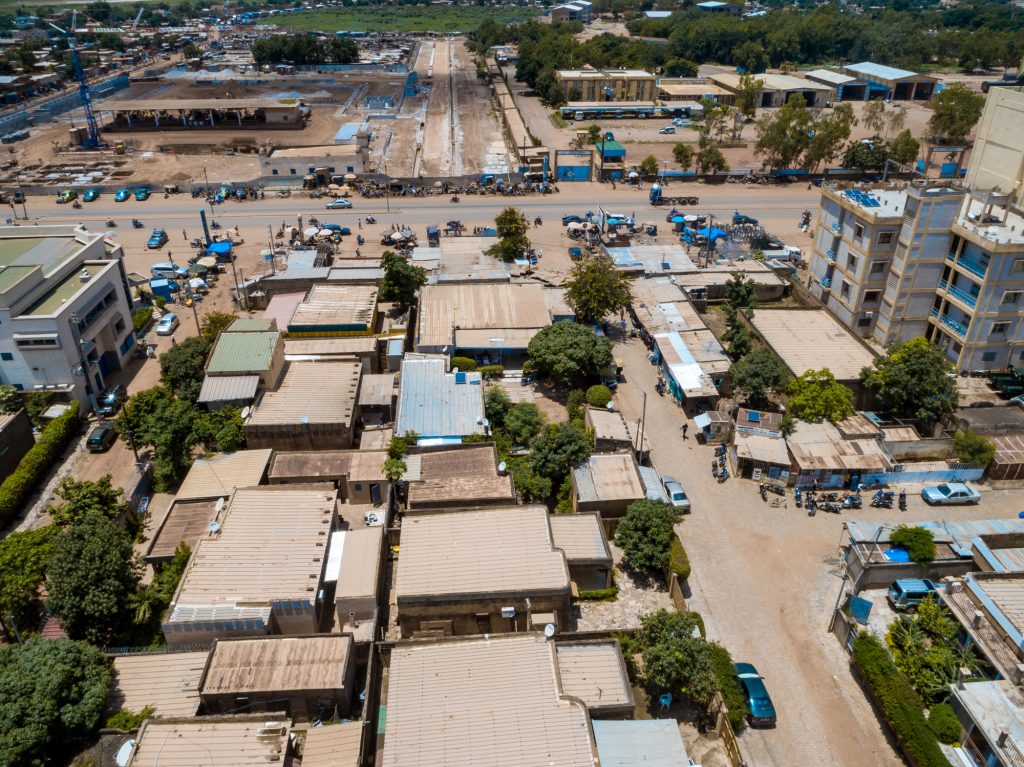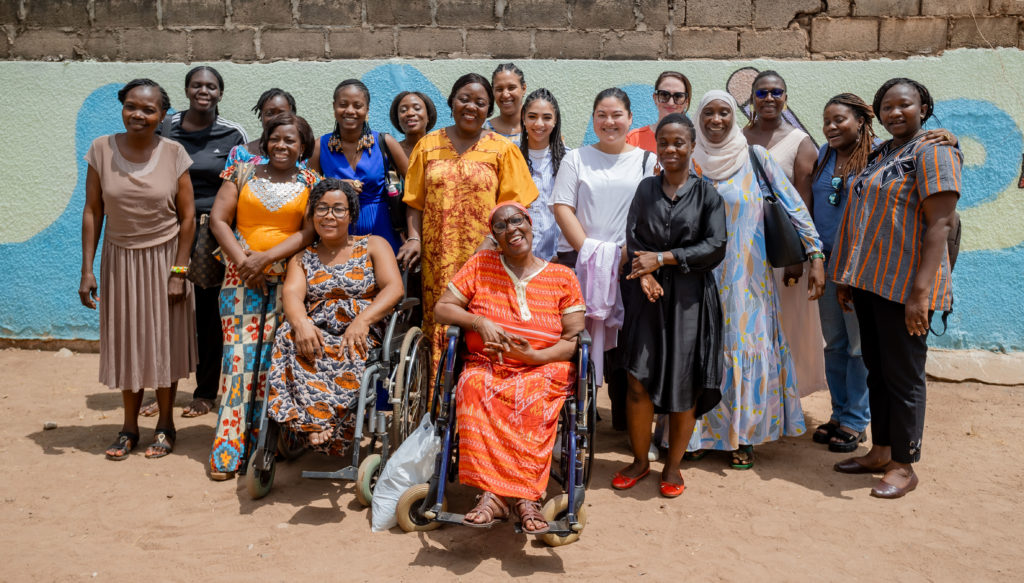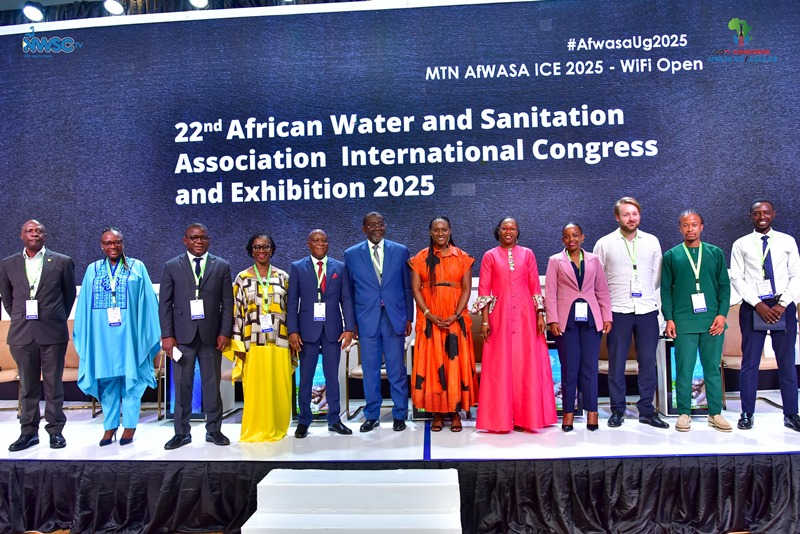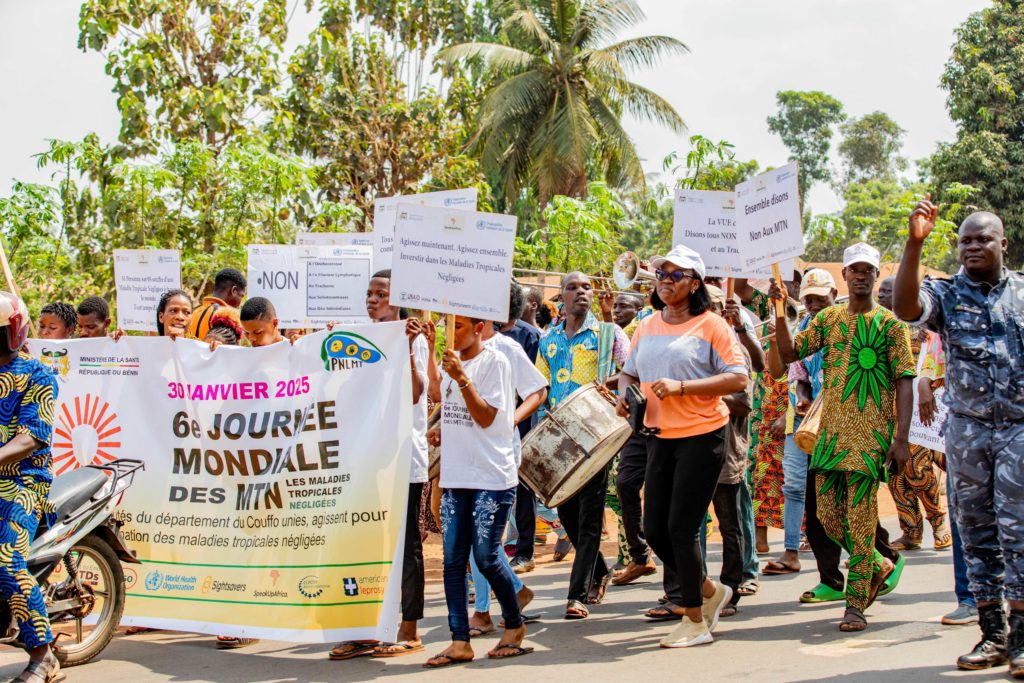The road is long, but African countries are ramping up their efforts to meet ambitious 2030 sanitation and hygiene targets

The 2019 UN-Water Global Analysis and Assessment of Sanitation and Drinking-Water (GLAAS) report focusing on 115 countries and territories identified that while most countries have general Water Sanitation and Hygiene (WASH) policies in place, successful implementation is hindered by a myriad of factors. Key among these are lack of adequate human and financial resources and overstretched WASH service delivery regulatory bodies that are unable to undertake the required surveillance. As evidence, less than 15% of countries reported having sufficient financial resources to implement plans, only 12% of countries reported that urban drinking-water surveillance is conducted at 100% of the required frequency and 1 in 6 countries surveyed reported a funding gap of 61% between needs and available funding.
Focusing on Africa alone, the situation is no less dire. In 2015, African ministers responsible for sanitation and hygiene in different African countries adopted what became known as the Ngor Declaration that was drafted in Senegal. The Declaration focused on universal access to adequate and equitable sanitation and hygiene services and an end to open defecation by 2030. Five years later, there still remains a lot to be done on the continent to reach this ambitious goal. In 2019, access to basic sanitation in Africa was still under 40% with sanitation crisis estimated to cost the continent around 4.3% of GDP. 30% of the continent’s population still lack basic hand-washing facilities with soap and water and 1 out of 3 schools have no sanitation service and 2 out of 3 have no basic hygiene services.
With Africa’s urban population expected to triple by 2050, the urgency of tackling WASH issues cannot be overstated and African governments are in a race against time. By 2050, there will be 14 megacities in Africa (cities with a population of at least 10 million people), up from the current 3 (Cairo, Kinshasa and Lagos.) Any issues that are being faced now, will be greatly compounded in the years to come.
While the continent still has a long way to go, different countries have been addressing some of the issues to try and ensure that SDG 6 on the provision of clean water and sanitation can be attained.
At a policy level, work is being done to achieve the Ngor Declaration targets and SDGs at a regional level. This work is being spearheaded by The African Ministers’ Council on Water (AMCOW) and its Member States, who are working to improve access to clean water and sanitation facilities for more people across the continent. Their development of The Africa Sanitation Policy Guidelines (ASPG) uses a consultative process to help governments and stakeholders set priorities and allocate resources to achieve their sanitation targets and eliminate open defecation.
When it comes to the status of WASH value chains, countries such as Senegal have realized the importance of engaging the private sector in sanitation and hygiene service delivery.Sewered sanitation even in the capital city of Dakar accounts for only 30% of homes with majority of the city’s dwellers having to rely on non-sewered sanitation. As such, the government’s delegation of certain services to the private sector is practical given they recognize that even in urban areas, they face financial and human constraints, limiting their own ability to serve the population. This has contributed to enhanced service levels and improved productivity in fecal sludge treatment plants. The government’s involvement of the private sector in improving its action plans especially those in the field of non sewered sanitation has also contributed to the promotion of sanitation by-products such as biogas, ashes and electricity. .
In Ouagadougou, only 5% of households have access to sewered sanitation. Alidou Bandé a manual emptier in Ouagadougou, interviewed by Speak up Africa – a Dakar headquartered, African policy and advocacy action tank that has one its major focus areas as sanitation – left his job as a photographer 15 years back when he realized how inadequate fecal sludge management was compromising his community’s living environment. Despite the initial stigmatization of taking on such a job, the community now realizes what a vital service he offers and he also trains his peers and communities in general on best practices around sanitation. This service that in many parts of the world is provided by governments, is one that most African countries struggle to provide even in urban areas. As such, public-private collaboration is needed for provision of sanitation services in the region.
When it comes to human & financial resourcing and systems, Ethiopia, a country that managed to reduce open defecation from 92% to 29% between 2000-2015, is now making use of investment planning (microplanning) from the bottom up to ensure that they not only have information on WASH status nationally, but also use the local needs in financial planning. Microplanning begins at the village level to establish sanitation status, requirements to reach safely managed sanitation, and the human resources available. Information is then aggregated all the way to national level to provide a full analysis of financial needs and resources. Uganda on its part, having experienced challenges in attracting and retaining sufficient numbers of qualified health workers to the sanitation and hygiene sector, carried out a comprehensive study in 2015 that led to a mass recruitment at all levels to address the deficit.
In terms of regulation and surveillance, Kenya is using Information and Communication Technologies (ICT) to become Open Defecation free by 2020 and to improve the provision of rural sanitation services in the country. The open source system has transformed Kenya’s rural sanitation monitoring and reporting by allowing access to data to all stakeholders, at all levels globally. The system runs analyses that generate maps, graphs and tables on trends and comparisons over time and across locations that can be exported into reports. In the next phase of the platform, global indicators including targets on basic sanitation and regional commitments will be captured, thus having a one-stop platform for planning, monitoring and reporting.
Finally, actions are being taken to make sure that no one is left behind. In Rwanda, strong political will has seen it achieve the highest annual rate of change in basic sanitation of its peers in East Africa. What is most impressive though of its government policies is the emphasis on making them extend to even rural areas. At sub-national level also, District Development Strategies reflect the prioritization of sanitation and hygiene. This is vital given that 8 out of 10 people without access to sanitation in Africa, live in rural areas. In Chad, the government realized the link between poor access to WASH services in schools and absenteeism. According to a 2017 survey by the Ministry of Education, only 23% of schools had toilets. The country carried out a study to understand the shortfalls for WASH in schools and is using the information to implement projects with technical and financial partners to improve the education system.
The road along is head for African countries but the progress being made by various countries to address WASH issues will go a long way in averting a disaster as population grows and as countries rapidly urbanize.
Ciku Kimeria is a communication consultant at Speak up Africa in Dakar, a policy and advocacy action tank focusing on various issues including sanitation, malaria, Neglected Tropical Diseases (NTDs) and immunization.


